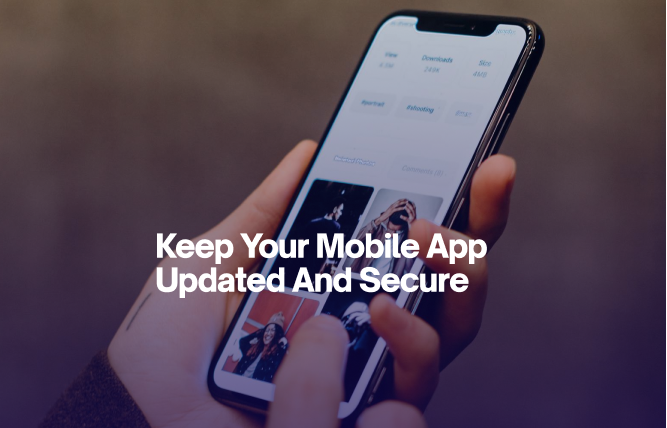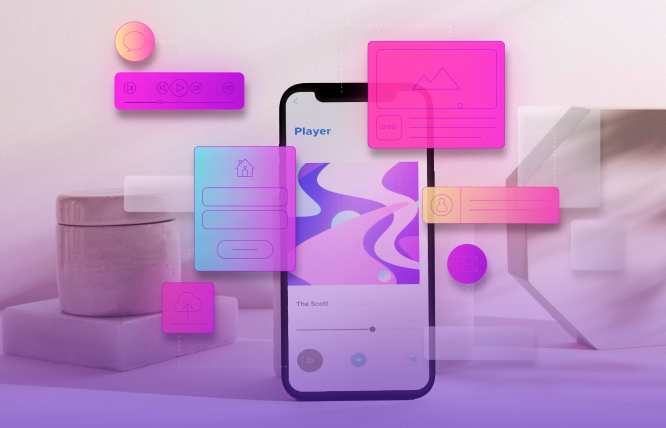In service-based businesses, convenience always wins. Whether it’s a clinic, salon, a cleaning service, or a private tutor, or anyone with any specific need feels the requirement for an app. Businesses are launching apps because their customers expect it. Not as a “nice to have.” As a baseline.
The shift isn’t just about technology. It’s about delivering the best while staying relevant. You have to think about giving your customers what they already want: control, access, speed, in their pocket.
The Shift Towards Mobile-First Service Models
The traditional model? Phone calls, emails, maybe a booking form. But here’s what we’re seeing now:
Customers don’t want to call. They don’t want to wait for a reply. Now they want everything on their fingertip, they would rather tap, scroll, and book.
Businesses that used to rely on word of mouth or walk-ins are now seeing the power of mobile-first. Because mobile isn’t just another channel, it’s the main channel.
The service game has gone digital. And mobile’s leading the way.
Want an App That Drives Bookings and Loyalty? Let's Connect!
Why Mobile Apps Are No Longer Optional for Service Businesses
This isn’t about being early adopters anymore. It’s about survival and making continuous changes according to the trends. If you're not on your customer’s phone, you’re not on their mind.
And while your competitors are sending push notifications, offering one-tap rebooking, and storing loyalty points… you’re still hoping for a call-back.
Here’s what we tell our clients:
If your service feels easier and is faster to access elsewhere, that’s where your audience will go.
Meeting Customers Where They Are — On Their Phones
Think about it. You’re not competing with other local businesses. You’re competing with every app on your customer’s screen.
So the question becomes: how do you earn a spot there?
Make features easy to navigate, like simple bookings, payments quick, interactions personal, and above all, bring in a team that gets every detail right.
An app isn’t just software. It’s your new storefront. Except this one sits in your customer’s hand — 24/7.
Streamlining Bookings, Payments, and Communication
No one wants to fill out forms or wait for invoices. People want clarity and speed.
That’s why smart service apps are simplifying the process end-to-end:
-
Book a slot
-
Get a confirmation
-
Pay instantly
-
Get reminders
-
Chat if needed
You see, it’s beyond automation; it’s about removing friction and giving customers fewer reasons to drop off.
Calculate Your App Cost the Right Way with FuturByte
Boosting Customer Loyalty Through App Features
Here’s what loyalty actually looks like today:
✔ A smooth experience
✔ Offers that feel personal
✔ Being remembered
✔ A layout that engages
✔ Features that attract
With apps, you can track your business more effectively, reward repeat customers, monitor usage, and send timely nudges to keep them engaged.
The best loyalty programs? They’re not punch cards. They’re smart, seamless, and built right into the app.
Real-Time Engagement That Builds Trust
Don’t just focus on a layout that engages and features that attract. Trust doesn’t come from flashy UIs; it comes from being present.
Let’s say there’s a delay or a last-minute reschedule. Without an app, that’s a call or an awkward email.
But with an app? It’s a quick notification.
Engagement tools like live chat, real-time alerts, and status updates make your business feel responsive, even when things don’t go as planned.
It goes beyond communication. It’s about showing up when it matters.
Still Thinking About Building an App? We Know What You Need!
Data-Driven Insights to Improve Service Delivery
If you're aiming to scale your business in 2025, speed is non-negotiable. According to recent stats, mobile devices account for over 50% of global internet traffic, underscoring the importance of mobile-first strategies.
Mobile apps provide real-time data, including:
-
Which services are used the most?
-
Where do users drop off?
-
What times see the most booking activity?
-
Which customers are at risk of churning?
These insights allow you to refine, improve, and scale your business based on real and actionable facts.
Standing Out in a Competitive Market
Most service businesses are still relying on good service and word of mouth. And yes, those matter. But in a sea of "good enough," it's the experience that truly sets you apart.
Your app becomes an integral part of your brand. While others fight for attention, your app fosters a relationship and stays on your customer's devices, ensuring you’re always within reach.
This is beneficial for recurring service businesses like salons, hotel bookings, fitness centres, home cleaning services, tutoring, and more.
How Service Businesses Are Winning with Apps (Real Cases)
We’ve seen it across industries:
What happens when schools combine offline learning with smart digital tools?
A primary school boosted parental involvement by 70% just by using Edsidera’s app to track home challenges.
One academy reduced admin time dramatically. Teachers now give feedback in seconds instead of hours.
A spa that reduced no-shows by 40% with automated app reminders.
A cleaning service that cuts admin time in half by letting customers manage everything through the app.
These weren’t major tech overhauls.
They were thoughtful, purpose-driven moves that made learning more engaging and teaching more effective.
Calculate Service-Based Business App Development Cost Today!
What to Consider Before Building an App?
Before you hire an app development company or write a single line of code, ask:
-
What’s the core problem we want this app to solve?
-
How do our customers really prefer to interact?
-
Are we solving for convenience, trust, scale, or all three?
Because a rushed app is worse than no app. And the right app becomes a growth engine.
Key Takeaways: Focus on the outcomes. Design for the user. And build with scale in mind.
Final Thoughts
Anyone can build an app. But not every app drives bookings, builds trust or keeps customers coming back.
The difference? Strategy.
The best service businesses do more than launch apps; they market them correctly and use them to sharpen their service, delight their users, and grow smarter. It’s about staying ahead and keeping your business ahead in the market.
Go Mobile-First — Launch Your App with FuturByte
Frequently Asked Questions
Apps like UrbanClap, Zocdoc, and TaskRabbit have set strong benchmarks in the industry. At FuturByte, we help businesses build apps with similar features and go beyond expectations by tailoring every detail to your service model.
A basic version (MVP) takes around 6–10 weeks, while more advanced solutions with multiple integrations may take 3–5 months. We design with scale in mind so you can grow as you go.
Yes. Whether it’s for salons, medical appointments, tutors, or cleaning services, we build on-demand service apps designed for real-time convenience, fast payments, and customer retention.
Definitely. We build custom customer service apps that help your team manage queries, bookings, and feedback — all in one dashboard. Great for internal support or after-sales service workflows.
Absolutely. We specialise in developing home service apps that offer easy bookings, real-time updates, payment integration, and location-based scheduling. Think of what Handy or Urban Company does — we deliver that and more.
The cost to develop a service-based mobile app typically starts from $5,000 for a basic version (MVP) and can go up to $100,000 or more for advanced solutions. At FuturByte, we break down costs based on features, complexity, and platform (iOS, Android, or both). Here's a rough idea: $5,000–$15,000 for a simple app with core features like booking, calendar sync, and basic payment. $15,000–$40,000 for mid-range apps with user profiles, real-time notifications, and service tracking. $40,000–$100,000+ for large-scale apps with custom UI, multi-role dashboards, AI features, or third-party integrations. We guide our clients to build smart—start lean, validate fast, and scale with data. Every project is scoped to your business model and long-term goals. Need a custom estimate? We’re happy to help.
Have questions or feedback?
Get in touch with us and we‘l get back to you and help as soon as we can!




